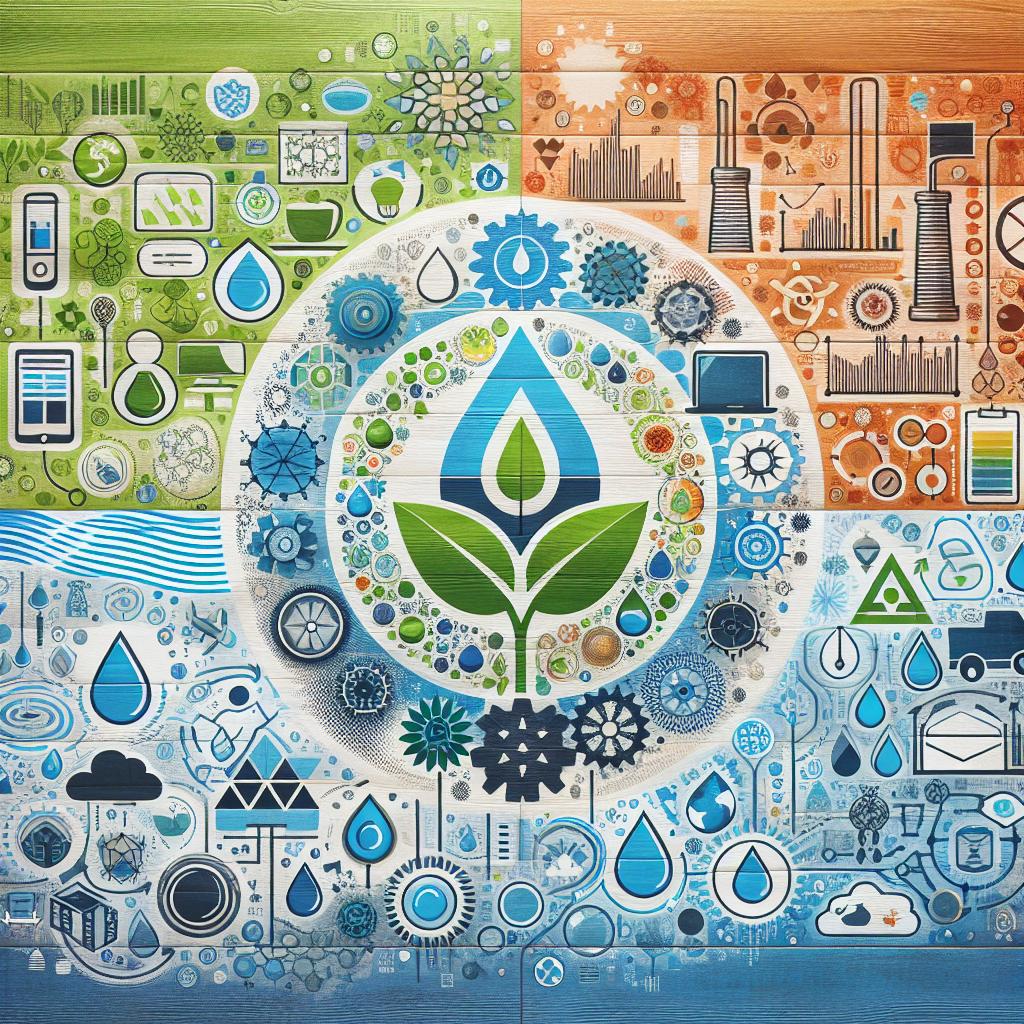This post may contain affiliate links which means I may receive a commission for purchases made through links. Learn more on my Private Policy page.
Unlocking the Secrets Beneath the Soil: The Impact of Irrigation Management on Nutrient Leaching
Have you ever taken a moment to ponder the hidden world beneath our feet? The intricate dance of soil, water, and nutrients plays a crucial role in not only the health of our crops but also the environment around us. As stewards of the land, farmers and agricultural managers face the challenge of optimizing irrigation to promote robust plant growth while safeguarding our precious natural resources. In this article, we’ll delve into the fascinating relationship between effective irrigation management and nutrient leaching—a phenomenon that can either nourish or diminish our soils depending on how we maneuver it. So, grab your watering can and let’s explore how thoughtful irrigation practices can make a world of difference for our plants and the earth we cherish!
Understanding Nutrient Dynamics in Irrigated Soils
Effective irrigation management is pivotal in maintaining the delicate balance of nutrients within the soil. When water is applied, it alters the concentration and movement of essential elements that plants require for growth. Ultimately, the timing, amount, and method of irrigation can significantly influence nutrient dynamics. Poorly managed irrigation can lead to the leaching of vital nutrients like nitrogen and potassium, which are washed away from the root zone and into deeper soil layers or waterways. This not only impacts the nutrient availability for crops but can also contribute to environmental issues such as water pollution.
To mitigate nutrient leaching, implementing strategies like drip irrigation and scheduled watering can prove highly beneficial. These methods maximize water efficiency and minimize excess runoff. Additionally, the use of cover crops and organic amendments can enhance soil structure, promoting better water retention and nutrient absorption. Here’s a quick overview of some essential practices:
| Practice | Benefits |
|---|---|
| Drip Irrigation | Reduces water waste and promotes localized nutrient application. |
| Soil Testing | Helps tailor fertilization based on precise nutrient needs. |
| Cover Crops | Improves soil health and minimizes erosion. |
| Organic Amendments | Enhances nutrient retention and improves microbial activity. |

Smart Irrigation Strategies to Minimize Leaching Losses
Implementing advanced techniques in irrigation management can drastically reduce nutrient leaching, which is a growing concern in sustainable farming. By focusing on smart irrigation strategies, farmers can ensure that their crops receive the necessary moisture without over-saturating the soil. Key methods include:
- Drip Irrigation: This system delivers water directly to the plant roots, minimizing excess runoff and keeping nutrients in the root zone.
- Soil Moisture Sensors: These sensors help in monitoring and adjusting the irrigation process to meet the exact moisture needs of the plants, reducing excess water application.
- Scheduling Irrigation: By irrigating at optimal times—such as early morning—farmers can significantly lower evaporation rates and improve water use efficiency.
- Cover Cropping: Utilizing cover crops during off-seasons enhances soil structure and can help absorb and retain nutrients, thereby reducing leaching.
Additionally, it’s crucial to adopt a holistic approach that combines various strategies for maximum effectiveness. Implementing a nutrient management plan tailored to the specific needs of the soil and crops can play a pivotal role in minimizing leaching losses. Here’s a brief overview of effective strategies:
| Strategy | Benefit |
|---|---|
| Adaptive Fertilization | Reduces excess nutrient application, thereby limiting leaching. |
| Controlled-Release Fertilizers | Ensures nutrients are released in sync with plant needs, minimizing runoff. |
| Regular Soil Testing | Helps tailor nutrient management and avoid overapplication. |

Tailoring Water Management for Sustainable Nutrient Retention
Effective water management is essential for reducing nutrient leaching, which occurs when excess water carries valuable nutrients away from the root zone of crops. By implementing tailored irrigation strategies, farmers can significantly enhance nutrient retention in the soil. Consider the following approaches:
- Drip Irrigation: This technique delivers water directly to the plant roots, minimizing runoff and evaporation.
- Variable Rate Irrigation: Adjusting water application based on specific field conditions ensures that crops receive only what they need.
- Soil Moisture Monitoring: Tracking moisture levels prevents over-irrigation and helps in applying nutrients more effectively.
Additionally, integrating organic amendments, such as compost or biochar, can enhance soil structure and promote nutrient retention. These amendments improve the soil’s water-holding capacity, leading to more efficient use of applied water and nutrients. The following table illustrates the benefits of combining good irrigation practices with organic soil amendments:
| Practices | Benefits |
|---|---|
| Drip Irrigation | Reduces water usage and minimizes leaching |
| Optimizes nutrient application based on crop needs | |
| Organic Amendments | Enhances soil health and improves nutrient retention |

Empowering Farmers with Practical Tips for Effective Irrigation Management
Effective irrigation management is crucial for minimizing nutrient leaching, which can ultimately enhance productivity and sustainability for farmers. Adopting precise irrigation techniques can significantly reduce the amount of water that carries nutrients away from the root zone. Here are some practical tips to consider:
- Schedule Wisely: Irrigate during the early morning or late afternoon to reduce evaporation.
- Understand Soil Moisture: Regularly monitor soil moisture levels to determine when and how much to irrigate.
- Implement Drip Irrigation: This method delivers water directly to the plant roots, minimizing runoff and leaching.
- Use Organic Mulching: Mulch can reduce evaporation and suppress weeds, leading to better moisture retention.
By optimizing irrigation practices, farmers can enhance nutrient retention, fostering healthier crops and better yields. Consider adopting these strategies:
| Practice | Benefit |
|---|---|
| Soil Amendment | Improves soil texture and nutrient-holding capacity. |
| Cover Cropping | Reduces erosion and nutrient runoff during off-seasons. |
| Precision Agriculture | Utilizes technology to customize water and nutrient application. |
The Way Forward
As we wrap up our exploration of irrigation management and its remarkable influence on nutrient leaching, it becomes clear that the choices we make in the field can ripple through the environment in profound ways. Just as a well-tuned orchestra creates a symphony, the harmony between water use and nutrient application can lead to flourishing ecosystems and sustainable agriculture.
By understanding the dynamics of our irrigation practices, we hold the key to safeguarding our soil and watersheds against unnecessary nutrient loss. So, as you step into your next gardening endeavor or agricultural project, remember that every drop of water counts. Choose wisely, manage thoughtfully, and together we can cultivate a greener, healthier tomorrow.
Thank you for joining us on this journey — here’s to nurturing the land with love and care, one irrigation decision at a time! Happy gardening!
This post may contain affiliate links which means I may receive a commission for purchases made through links. Learn more on my Private Policy page.

